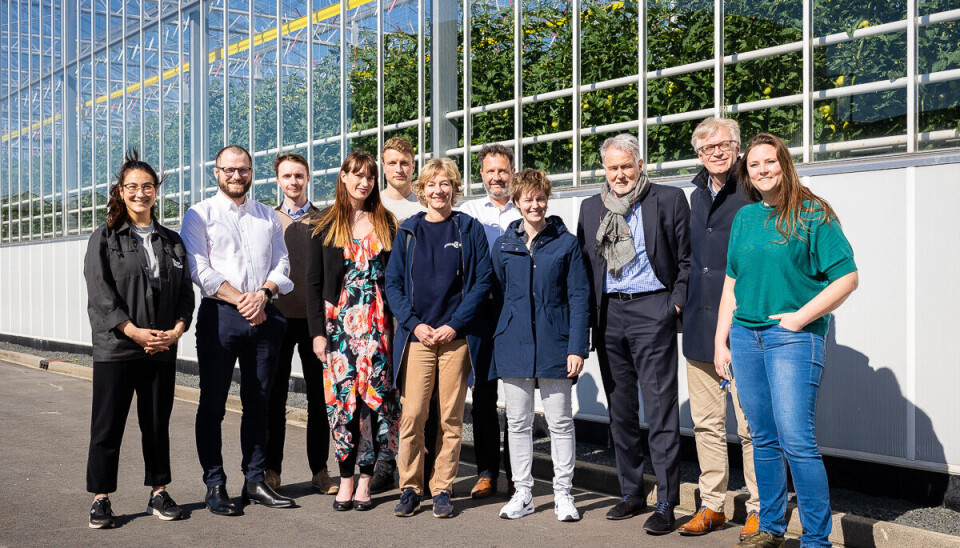
Feed-from-fumes company takes significant step forward
Deep Branch demonstrates that existing CO₂ supply infrastructure can be used to grow protein for aquafeed
Deep Branch, the company developing an aquafeed protein ingredient from microbes fed on carbon dioxide (CO₂), has moved a step closer to commercialisation.
The Anglo-Dutch innovator proved that existing CO₂ infrastructure can be used in its protein production process after tapping into a supply used by a major greenhouse tomato grower, Duijvestein.
CO₂ boosts vegetable and flower growth and around 500,000 tonnes of the gas are supplied to Dutch growers annually by OCAP, a company that uses gas captured during processes carried out by the Shell Pernis oil refinery and the Alco bio-ethanol plant, both in the Rotterdam industrial area.
Deep Branch, which wants to produce 600,000 tonnes of its "Proton" branded single-cell protein (SCP) ingredient annually by 2030, says the proof achieved in cooperation with Duijvestein and OCAP is a crucial step in de-risking its technology.
Pilot unit
The company sited a containerised version of its proprietary gas fermentation platform technology at a Duijvestein greenhouse site. The containerised platform – called the mobile pilot unit, or MPU - has been fully commissioned, showing that the technology works with OCAP’s captured and cleaned CO₂.
Long-term, the project could inform the location of Deep Branch’s first commercial facility, with the Port of Rotterdam being a potential site.
Deep Branch said that basing its first commercial facility in Rotterdam would enable the company to service the growing European aquaculture and livestock markets by providing feed producers with a protein ingredient with up to 90% less CO₂ than conventional ingredients such as soy and fishmeal.
Scale-up work
Rob Mansfield, Deep Branch’s chief technology officer, said: “The experience and outcomes from the project will be used in parallel with our ongoing scale-up work at the Brightlands Chemelot Campus (also in the Netherlands) to inform engineering and operational considerations of a potential future commercial facility at the Port of Rotterdam.”
Jacob Limbeek, chief executive of OCAP, which is owned by Linde Gas, said: “We’re proud to partner with an innovative company such as Deep Branch that shares our commitment to sustainability. By directly collaborating with end-users in the growing carbon tech industry, we can make a significant impact in the fight against climate change and create a more circular economy.”
Deep Branch’s MPU was previously deployed on-site with Drax Power Group in Yorkshire, where Deep Branch was involved in the REACT-FIRST project with partners including the Sustainable Aquaculture Innovation Centre (SAIC), feed producer BioMar, and retailer Sainsbury’s.
Market launch facility
Proton is produced by growing microbes fed a combination of gases – primarily carbon dioxide but also hydrogen and oxygen – along with an ammonia solution for nitrogen, and trace elements. It contains 65-70% protein, higher than soy or peas and around the same level as plant protein concentrates and fish meal, but with a 60% smaller carbon footprint than soy protein concentrate.
Deep Branch currently operates a two-tonnes-per-year pilot facility at the Brightlands Chemelot Campus in the Netherlands and is planning a market launch facility by 2025 that can produce about 250 tonnes per annum on a dry matter basis, enabling larger product tests.
After that, it aims for a first 60,000 tonnes per annum commercial facility, perhaps in Rotterdam, which will scale into full production by 2029.






















































